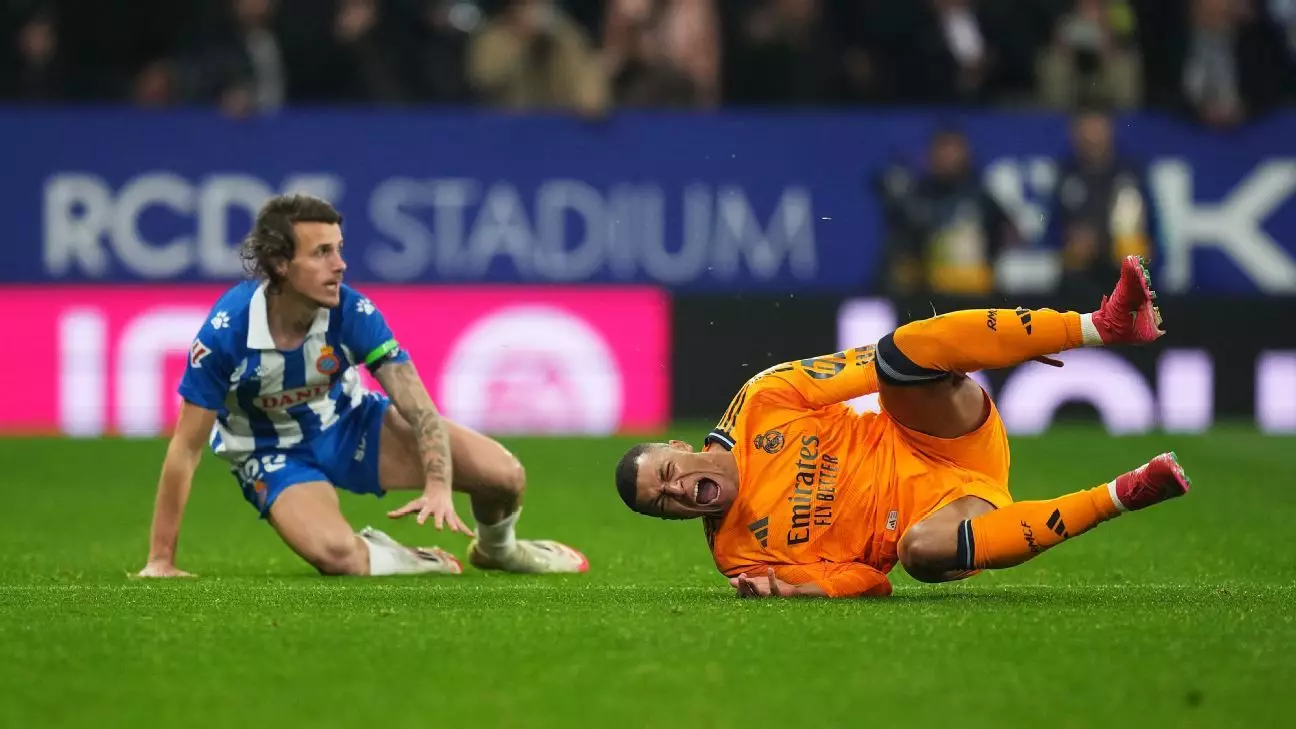Real Madrid’s head coach, Carlo Ancelotti, has taken a bold stance regarding the club’s ongoing grievances with refereeing in LaLiga. In a recent news conference, he framed the club’s formal complaint as a pivotal moment that could instigate necessary changes within a system he described as “completely discredited.” This commentary comes on the heels of Madrid’s frustration stemming from a controversial incident in their recent match against Espanyol, where defender Carlos Romero avoided a red card for a risky challenge on superstar Kylian Mbappé—an omission that coincidentally allowed Romero to clinch the winning goal for Espanyol.
Ancelotti’s remarks underscore the club’s growing dissatisfaction not only with specific officiating decisions but also with the overarching reliability of refereeing in Spanish football. The team’s management has issued a letter to Spain’s football federation (RFEF) and the Sports Ministry, demanding answers and transparency—specifically, the release of audio recordings from the VAR discussions concerning both the foul on Mbappé and a disallowed goal. Ancelotti’s assertion that “something happened which was inexplicable” highlights the depth of concern regarding accountability and integrity in officiating.
In response to Real Madrid’s accusations, the RFEF pushed back, labeling the club’s broad claims as “generalized accusations” that undermine the sport’s credibility. This spat illustrates not only a fracture between a premier club and the governing body but also raises questions about the effectiveness of VAR in enhancing transparency and fairness in the game. Madrid’s discontent is not isolated; Ancelotti noted that “everybody complains,” suggesting a systemic discontent that could potentially affect perceptions of LaLiga as a whole.
Real Madrid’s frustrations are emblematic of a larger crisis within football officiating. Such situations often relay discussions about the efficacy of VAR technology and its intended purpose of eliminating human error in crucial moments. However, when the implementation becomes convoluted or when transparency is lacking, as Madrid’s outcry signifies, it invites severe critique from stakeholders across the sport.
Beyond the controversy surrounding refereeing, Ancelotti now faces a pressing issue within his team: a growing injury list among defenders. With both Antonio Rüdiger and David Alaba sidelined, along with Éder Militão already injured, the coach’s defensive options are rapidly dwindling, calling into question the club’s decisions during the January transfer window.
Ancelotti’s acknowledgment of the unexpected nature of recent injuries speaks to the unpredictability of the sports world, where being caught unprepared can have significant repercussions on a team’s competitive edge. “This is an emergency moment we have to deal with,” he admitted, highlighting the urgency of filling gaps in the line-up. The response strategy may lead to a tactical reshuffle that involves younger players stepping into significant roles, demonstrating a willingness to adapt despite the challenges.
Looking ahead, Madrid faces a challenging schedule, including a match against local rivals Atlético Madrid and a crucial game against Manchester City in the Champions League. The compounding pressure of both league and cup competitions, combined with a depleted squad, underscores the trials Ancelotti must navigate. He spoke optimistically about younger players like Jacobo Ramón potentially stepping in to support the team, however, the absence of star players such as Jude Bellingham and Mbappé only amplifies concerns regarding depth and experience.
The impending cup clash against Leganés could serve as a proving ground for the squad’s resilience amid adversity. Ancelotti’s confidence in players like Aurélien Tchouaméni—who has shown promise despite the inherent learning curve of youth—will be tested as Real Madrid seeks to maintain its competitive stature in both domestic and international arenas.
Carlo Ancelotti’s comments encapsulate a dual crisis facing Real Madrid: the urgent need for reform in officiating standards and the immediate challenge of managing player injuries that could impede performance. While the club’s complaints may resonate with many in the football community, action and transparency from the RFEF are crucial for rebuilding faith in the system. As the games progress and the stakes rise, Real Madrid will need both tactical ingenuity and robust governance in order to navigate the intricacies of this demanding season.

